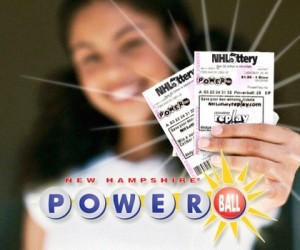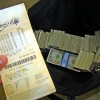Background

New Hampshire Lottery Commission
Although New Hampshire started the country's first modern lottery, it's struggled with revenues in recent years
In 1964, New Hampshire became the first state in the country to establish a modern lottery system. It was started as a way to fund education beyond traditional taxation. Today, everything that doesn’t go into prizes or overhead is set aside for the state’s education system. As of right now, the New Hampshire Lottery Commission reports it contributes 27 percent of lotto revenue to the education system.
Beginning in 2002 the lottery steadily gained ground on the revenue front (with the exception of FY 2005). It reached its peak in FY 2006, pumping more than $80 million into the education system. The decline in revenues began the following year, and continued into FY 2011, with only $62 million going to schools.
By far, the biggest money-maker for the New Hampshire Lottery Commission has been instant scratch tickets. Although ticket sales have declined since FY 2006–2007, they still haven’t fallen to FY 2002 levels. Between FY 2002 and FY 2011, instant ticket sales have hovered between roughly $210 million and $270 million. Meanwhile, the next-highest revenue category, Powerball, is a distant second, raking in between $70 and $80 million or so during the same timespan.
Although the Granite State’s decision to institute a lottery system was progressive in the 1960’s, today, it faces stiff competition from its neighbors. At this point, the state’s biggest competitor is probably Massachusetts. In addition to offering a greater percentage of revenues as prizes, the Bay State also operates a wider variety of games, including Keno. New Hampshire Lottery Director Charlie McIntyre estimates about 2.5 percent of Mass Lottery sales are to Granite Staters.
How much gaming New Hampshire should offer to residents is an on-going question at the statehouse. Various pro-gaming legislators have pointed to the competition from other New England states as justification to expand gambling. Opponents of expanded gaming note there are potential negative economic effects of expanded gaming, including the possibility that some people who play these state-run games might not be able to afford to participate. They also question whether expanded gambling could alter the quality of life in New Hampshire.










